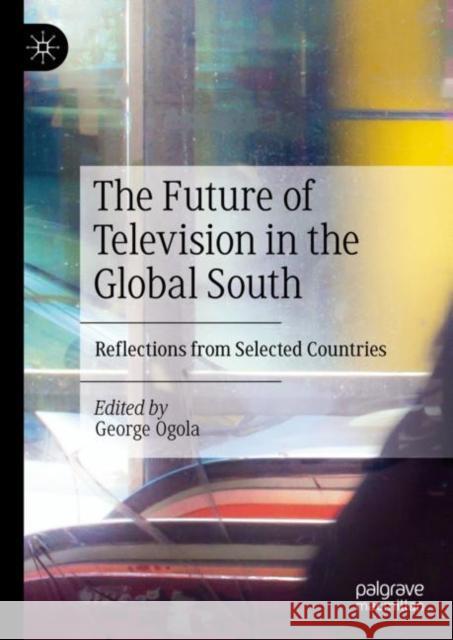The Future of Television in the Global South: Reflections from Selected Countries » książka
The Future of Television in the Global South: Reflections from Selected Countries
ISBN-13: 9783031188329 / Angielski / Twarda / 2023 / 240 str.
The Future of Television in the Global South: Reflections from Selected Countries
ISBN-13: 9783031188329 / Angielski / Twarda / 2023 / 240 str.
(netto: 576,41 VAT: 5%)
Najniższa cena z 30 dni: 539,74
ok. 22 dni roboczych.
Darmowa dostawa!
This book explores how television in the global South is ‘future-proofing’ its continued relevance, addressing its commercial, social and political viability in a constantly changing information ecosystem. The chapter contributions in the book are drawn from countries in East, South and West Africa, the Middle East and Latin America, specially selected for their illustrative potential of the key issues addressed in the book.Scholarly attention on television in the global South has largely been limited to studying evolving television formats with broader structural issues covered almost entirely by industry reports. Major gaps remain in terms of understanding how television in the global South is changing within the context of the significant technological developments and what this means for television’s future(s). The chapters reflect on these futures, not in the sense of predicting what these might be, but rather anticipating important areas of intellection. The contributors contend that much of the scholarship on the global South, by scholars from the South, is often stilted by a reluctance to anticipate. This failure leads to a largely reactionary scholarship, constantly oppositional, and unable to recentre conversations on the South. This volume finds intellectual incentive in this urgent need to anticipate, hence its particular focus on television futures. Taking television in the global South as an important cultural and political barometer, the book seeks to explore how television in the global South is adapting to the rampant technological changes and processes of globalisation.
This book explores how television in the global South is ‘future-proofing’ its continued relevance, addressing its commercial, social and political viability in a constantly changing information ecosystem. The chapter contributions in the book are drawn from countries in East, South and West Africa, the Middle East and Latin America, specially selected for their illustrative potential of the key issues addressed in the book. Scholarly attention on television in the global South has largely been limited to studying evolving television formats with broader structural issues covered almost entirely by industry reports. Major gaps remain in terms of understanding how television in the global South is changing within the context of the significant technological developments and what this means for television’s future(s). The chapters reflect on these futures, not in the sense of predicting what these might be, but rather anticipating important areas of intellection. The contributors contend that much of the scholarship on the global South, by scholars from the South, is often stilted by a reluctance to anticipate. This failure leads to a largely reactionary scholarship, constantly oppositional, and unable to recentre conversations on the South. This volume finds intellectual incentive in this urgent need to anticipate, hence its particular focus on television futures. Taking television in the global South as an important cultural and political barometer, the book seeks to explore how television in the global South is adapting to the rampant technological changes and processes of globalisation.











